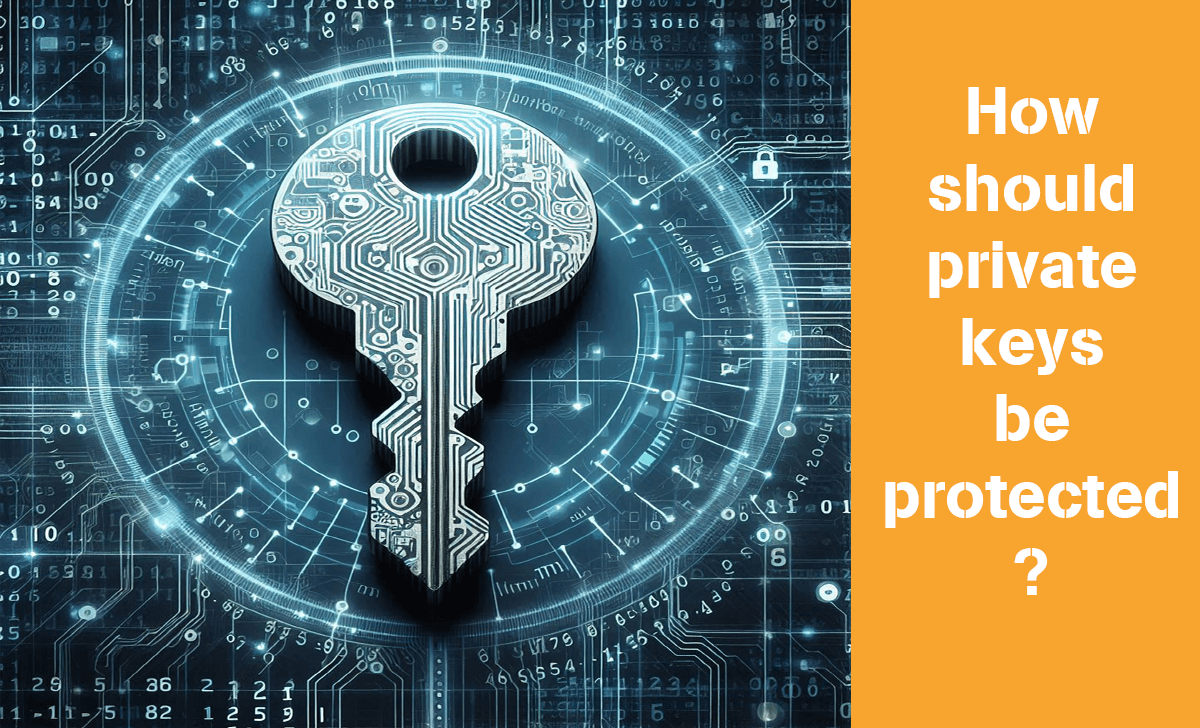Private Key is a sophisticated form of encryption that allows users to access their cryptocurrency wallets. This type of key is responsible for protecting digital assets from theft and unauthorized access, often going hand in hand with the public key.
If you want to learn more about the topic of private keys, why not take some time to follow upcoming content from AZCoin?
What is a private key?

Private Key is also known by many other names such as private key, and personal key,… All of them refer to a sophisticated form of encryption. This key will allow users to access their cryptocurrency wallets while protecting digital assets from theft and unauthorized access.
A correct private key will consist of a complex string of characters such as uppercase letters, lowercase letters, and numbers in many forms, such as binary QR codes or easy-to-remember phrases. Along with that, there will be a separate access address that allows you to make transactions in the wallet.
Additional information for you is that the character strings in the key will be generated randomly or pseudo-randomly with high complexity to prevent maximum attacks from the outside. Whether your private key is strong or not will depend greatly on the above process.
Of course, you should only keep the private key for yourself or only share it with parties authorized to decrypt data.
How does private key work?

The private key when operating will often go hand in hand with the public key. Accordingly, this process can be described as follows:
- Step 1: The sender receives and knows the public key address from the recipient.
- Step 2: The sender encrypts the information from the recipient’s public key address.
- Step 3: The sender proceeds to send encrypted information to the recipient.
- Step 4: The recipient uses his private key to decrypt the sent data.
Besides, if you have time, we would like to suggest you check out other interesting content such as What is BRC-20, What are Altcoins, What are play-to-earn crypto games,…
Difference between private key and public key

The private key and public key both have the same thing in common: verifying a certain transaction has been spent by the user. Besides this point, many differences can be mentioned such as:
- Mechanism: A private key is a complex string of characters created only for the owner, while a public key is a string of characters that can be made public and widely distributed.
- Performance: A private key has a fast operation mechanism because it only needs one key while the public key needs two keys to operate, so it will be slower.
- Privacy: Private keys are required to remain secret and must not be revealed to anyone other than the owner, cannot be recovered, and encrypted files cannot be used while public keys are completely public and cannot be used. may be lost.
How should private keys be protected?

With its important nature and operating policy that does not allow recovery when lost, protecting private keys must be given top priority. Some tips you can try:
- Store the key in a private and secure place, accessible only to you.
- Do not take photos or store keys with simple storage tools. Although very convenient, the risk of being attacked is very high.
- Do not access or use malicious software or links of unknown origin from outside.
- Use two-factor authentication if possible.
- Use devices offline or store them through a secure register if possible.
Conclusion
Here is all the most understandable content we can share about private keys. Hopefully, it will be useful to you. If you are interested in cryptocurrency, please take a look at the best crypto exchanges here.

I am Tony Vu, living in California, USA. I am currently the co-founder of AZCoin company, with many years of experience in the cryptocurrency market, I hope to bring you useful information and knowledge about virtual currency investment.
Email: [email protected]











